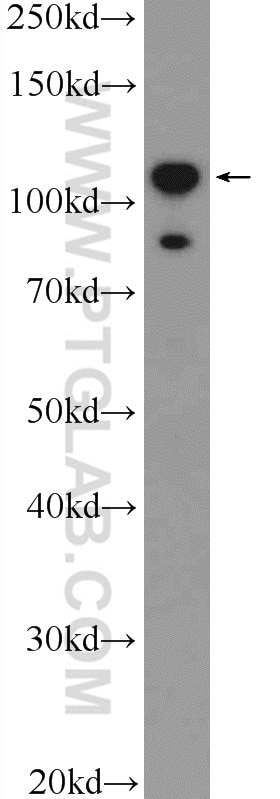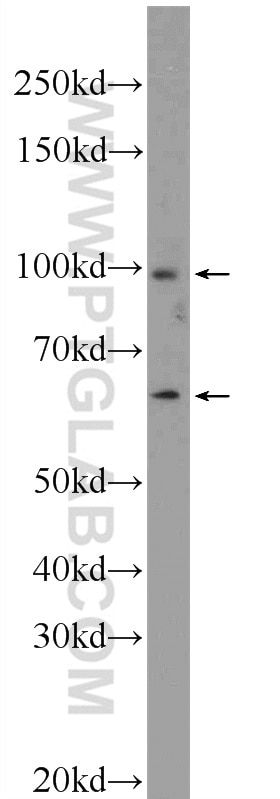DIS3L2 Polyclonal antibody
DIS3L2 Polyclonal Antibody for IHC, WB, ELISA
Host / Isotype
Rabbit / IgG
Reactivity
human, mouse
Applications
WB, IHC, ELISA
Conjugate
Unconjugated
Cat no : 25792-1-AP
Synonyms
Validation Data Gallery
Tested Applications
| Positive WB detected in | HepG2 cells, mouse embryo tissue |
| Positive IHC detected in | human testis tissue Note: suggested antigen retrieval with TE buffer pH 9.0; (*) Alternatively, antigen retrieval may be performed with citrate buffer pH 6.0 |
Recommended dilution
| Application | Dilution |
|---|---|
| Western Blot (WB) | WB : 1:500-1:1000 |
| Immunohistochemistry (IHC) | IHC : 1:100-1:400 |
| It is recommended that this reagent should be titrated in each testing system to obtain optimal results. | |
| Sample-dependent, Check data in validation data gallery. | |
Published Applications
| WB | See 1 publications below |
Product Information
25792-1-AP targets DIS3L2 in WB, IHC, ELISA applications and shows reactivity with human, mouse samples.
| Tested Reactivity | human, mouse |
| Cited Reactivity | human |
| Host / Isotype | Rabbit / IgG |
| Class | Polyclonal |
| Type | Antibody |
| Immunogen | DIS3L2 fusion protein Ag22963 |
| Full Name | DIS3 mitotic control homolog (S. cerevisiae)-like 2 |
| Calculated Molecular Weight | 885 aa, 99 kDa |
| Observed Molecular Weight | 65 kDa, 99 kda |
| GenBank Accession Number | BC030113 |
| Gene Symbol | DIS3L2 |
| Gene ID (NCBI) | 129563 |
| RRID | AB_2880240 |
| Conjugate | Unconjugated |
| Form | Liquid |
| Purification Method | Antigen affinity purification |
| Storage Buffer | PBS with 0.02% sodium azide and 50% glycerol pH 7.3. |
| Storage Conditions | Store at -20°C. Stable for one year after shipment. Aliquoting is unnecessary for -20oC storage. 20ul sizes contain 0.1% BSA. |
Background Information
DIS3L2 encodes a protein of 885 amino acids with a predicted molecular weight of 99.3 kDa.
Protocols
| Product Specific Protocols | |
|---|---|
| WB protocol for DIS3L2 antibody 25792-1-AP | Download protocol |
| IHC protocol for DIS3L2 antibody 25792-1-AP | Download protocol |
| Standard Protocols | |
|---|---|
| Click here to view our Standard Protocols |
Publications
| Species | Application | Title |
|---|---|---|
Life Sci Alliance Low expression of EXOSC2 protects against clinical COVID-19 and impedes SARS-CoV-2 replication |





